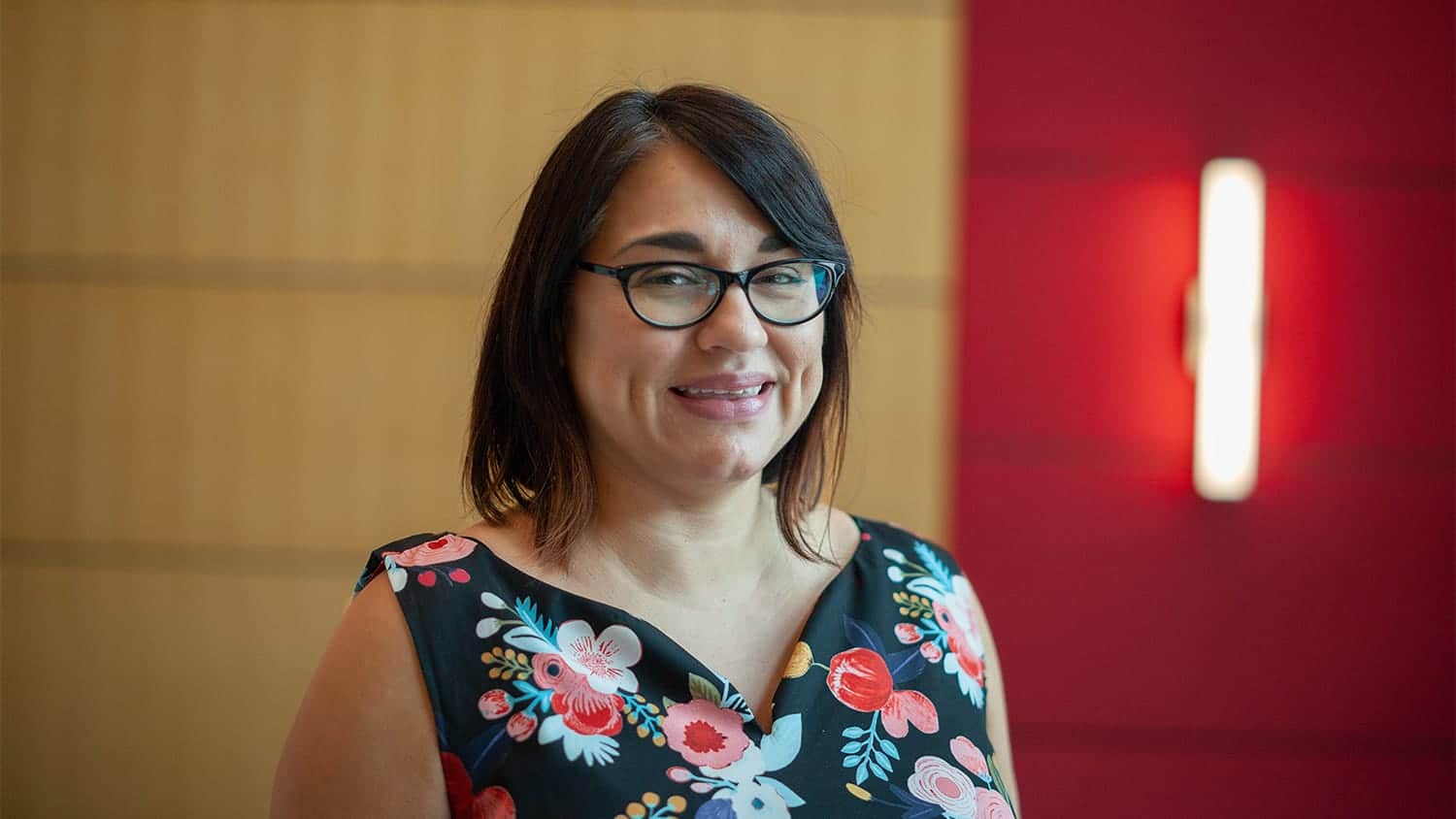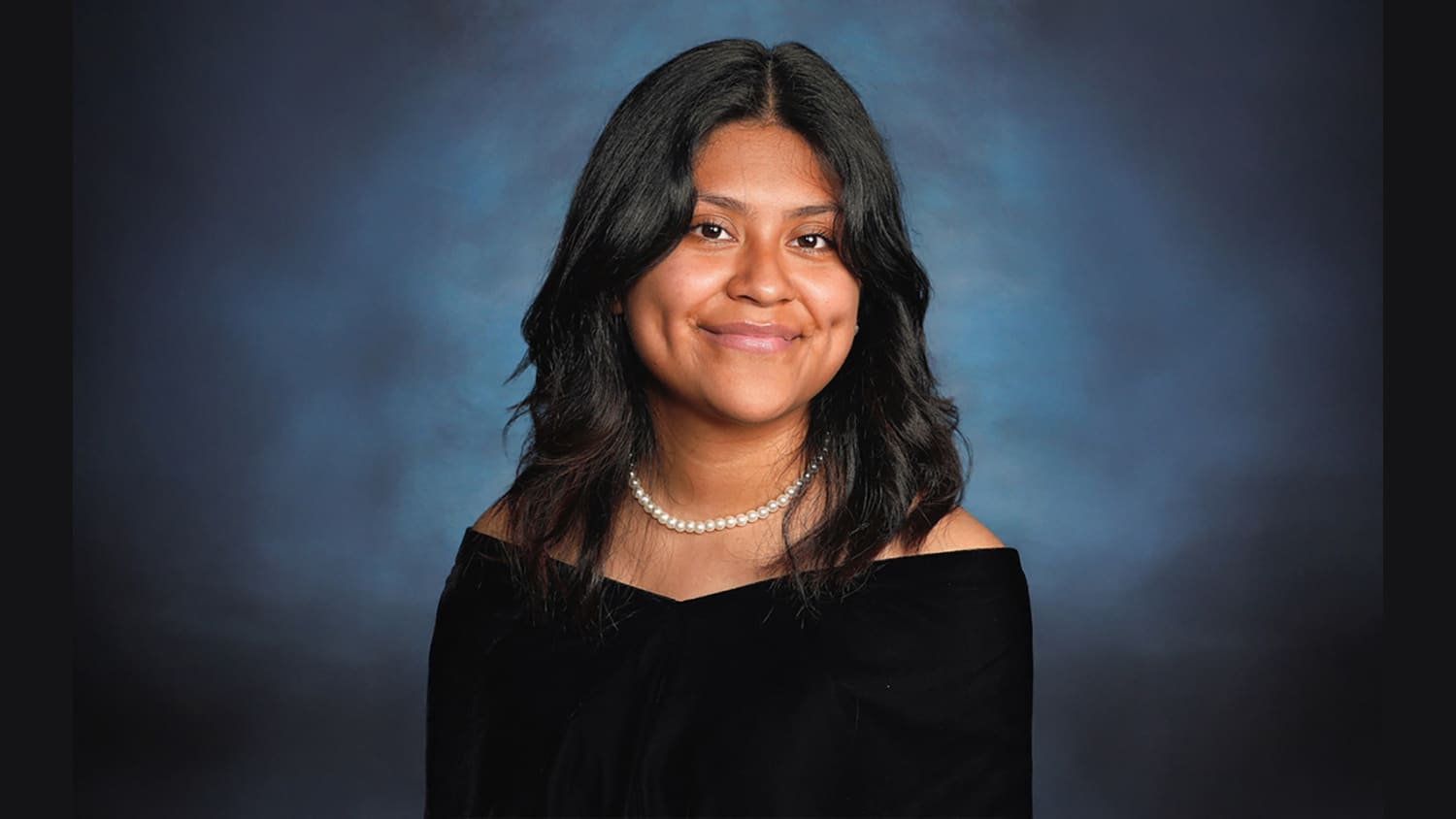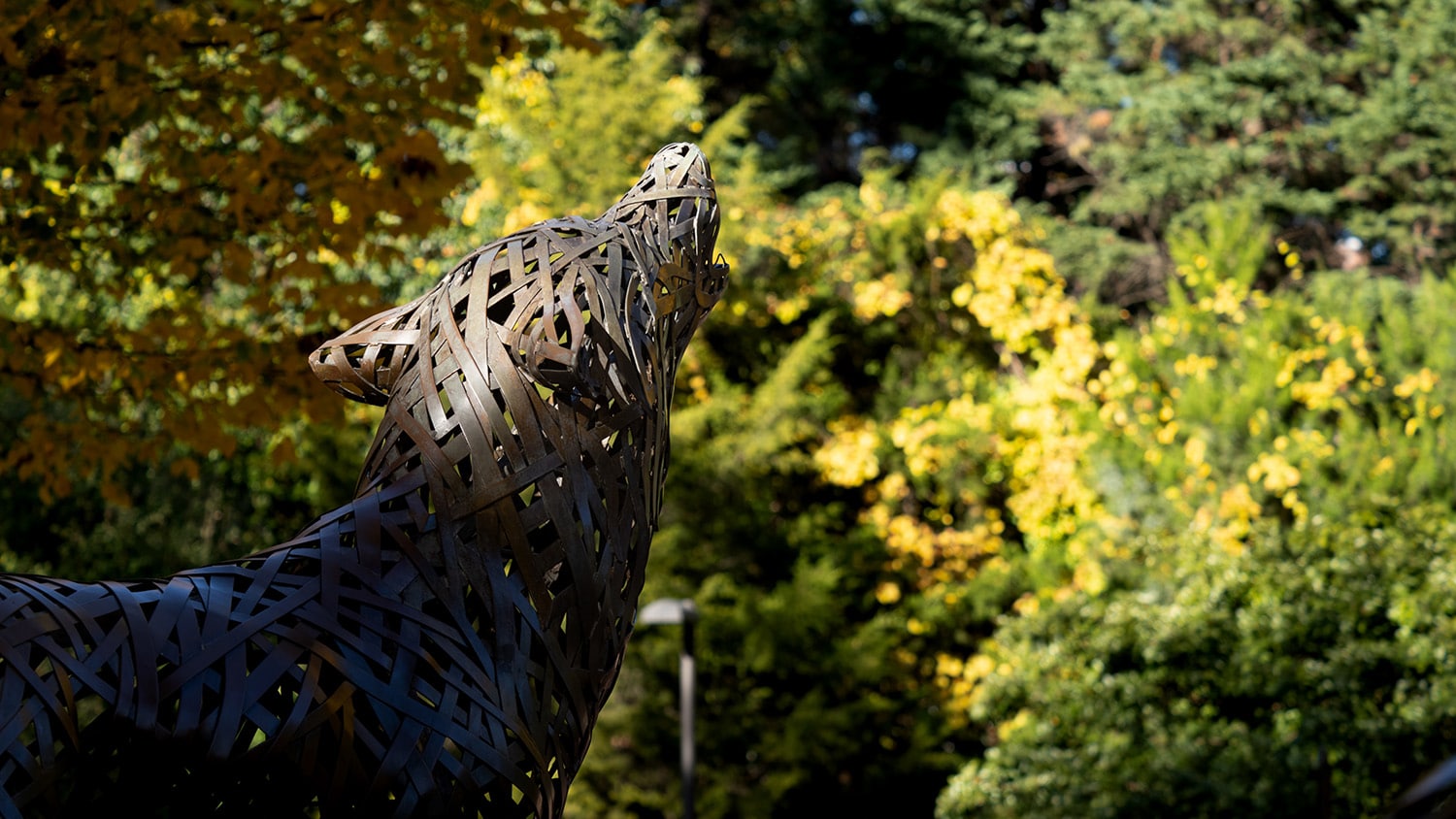Moving Toward a More Diverse, Equitable and Inclusive College
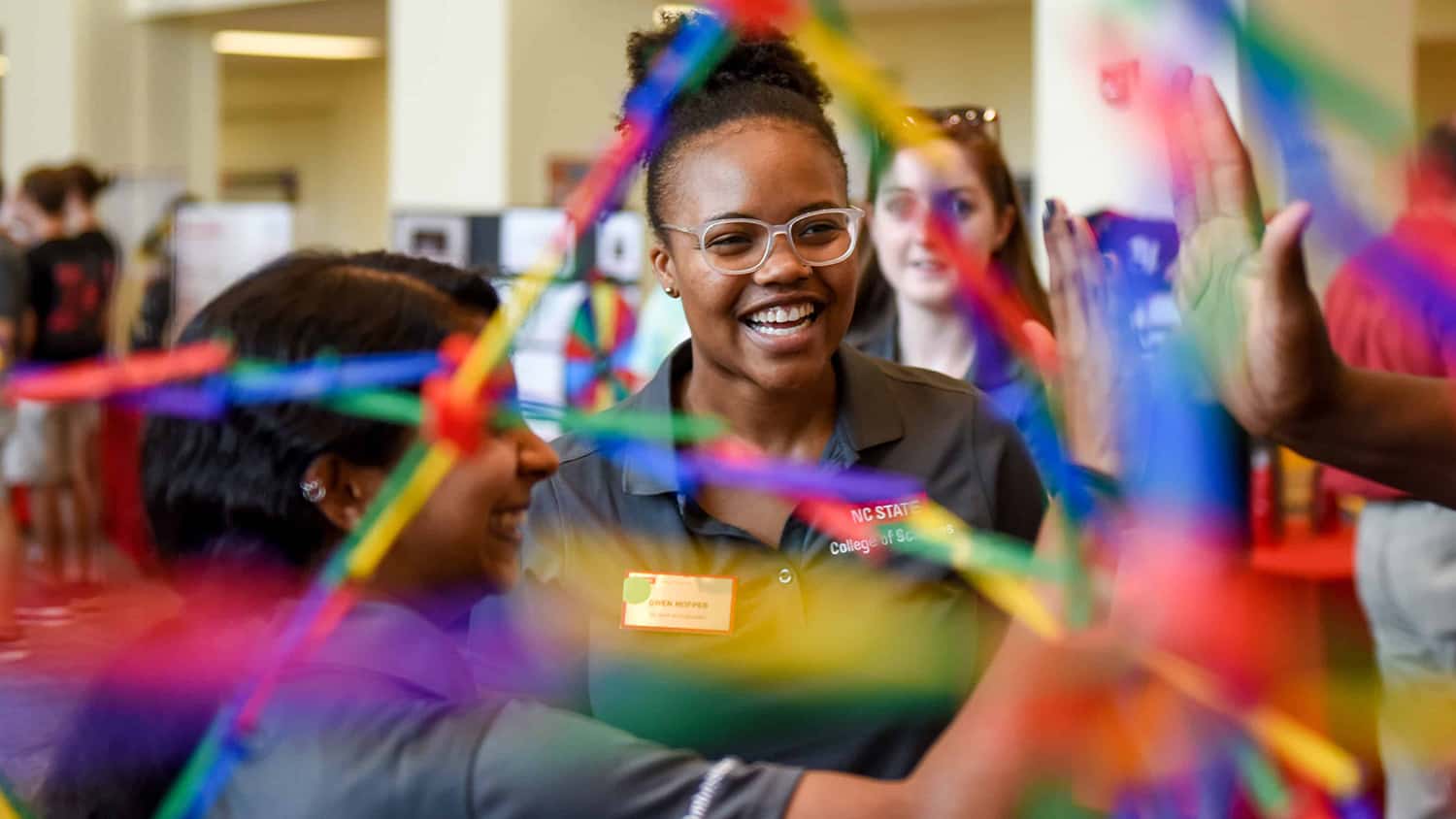
Jamila Simpson knows firsthand the challenges that diverse students can face at NC State.
As a student in the late 1990s who would become the university’s first Black female graduate in meteorology, she didn’t see many people in her classes who looked like her.
Today, as the College of Sciences’ assistant dean for academic programs, student diversity and engagement, Simpson hears similar concerns from diverse students. This is just one of the reasons the college is working hard to improve the culture and experience for its underrepresented students, as well as faculty and staff.
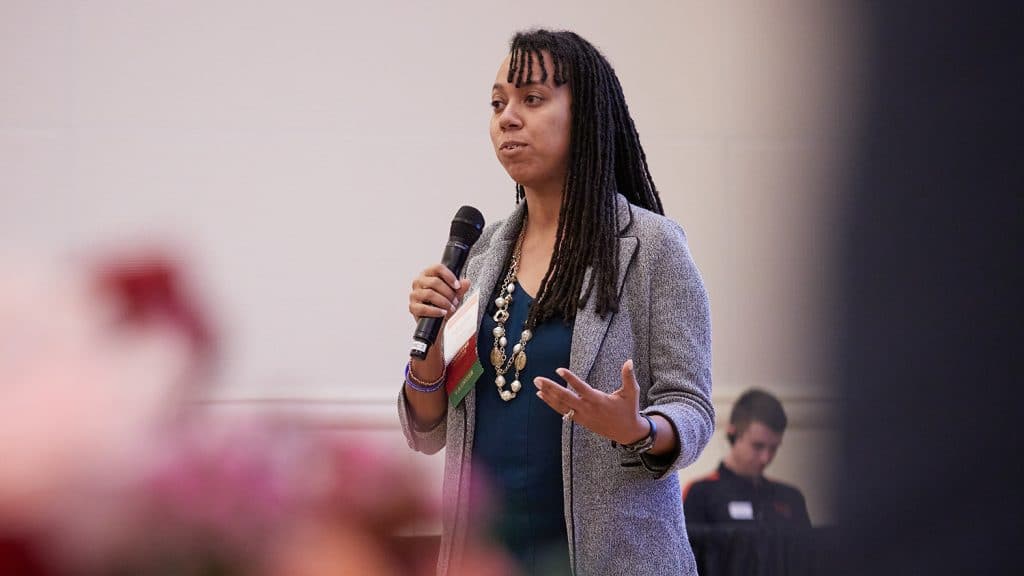
Currently, about 35% of undergraduate students in the college identify as a race or ethnicity other than white. That number has climbed over the years, but it still doesn’t reflect the diversity in the country as a whole. And stereotypes paint scientists as traditionally white and male, which can make students who don’t fit those characteristics suffer from impostor syndrome, or feeling like they’re perceived as less capable than their peers.
“For underrepresented students, that feeling that NC State believes that they belong here is a big deal,” Simpson said. “They absolutely do, and as a college, we want to do whatever we can to let them know that and make them feel welcome.”
“For underrepresented students, that feeling that NC State believes that they belong here is a big deal.”
This mission isn’t new, and the college has already established many strong programs and other efforts to support diversity, equity and inclusion (DEI). However, the focus has formalized and intensified since several police-involved killings of Black men and women in 2020 pushed racial justice issues forward in the American consciousness.
“One of our main goals as a college is examining and addressing areas of inequality in our community,” said College of Sciences Dean Chris McGahan. “Along with supporting university efforts, we’re developing our own new initiatives to create a more welcoming culture for all of our students, faculty and staff.”
Listening and Learning
To enact change, the college first had to understand what needs to change.
Last June, the college held a listening session to allow faculty and staff of color to share their concerns. And in July, the college held a virtual town hall on race, diversity and equity that was attended by more than 170 faculty and staff.
To continue strengthening a foundation for the future, the college is working with Tidal Equality, a consulting firm that focuses on DEI issues, on crafting its strategic plan.
“It’s extremely important to us that our entire community be represented in this plan that will guide the next phase of our college,” McGahan said.
Nikki Price, the college’s assistant dean for culture, talent and human resources, said many of the faculty and staff she’s heard from want to see the college sharing openly and honestly what it could be doing better. She said the leadership team in the college takes the idea of accountability seriously.
“We want to make sure, as a college, that our actions are matching our words.”
“We want to make sure, as a college, that our actions are matching our words,” she said. “In our leadership meetings, we consistently revisit the concerns that were raised in our town hall to make sure we’re living up to the promises we made.”
Listening sessions will continue, and members of the community are welcome to share concerns with the college at any time.
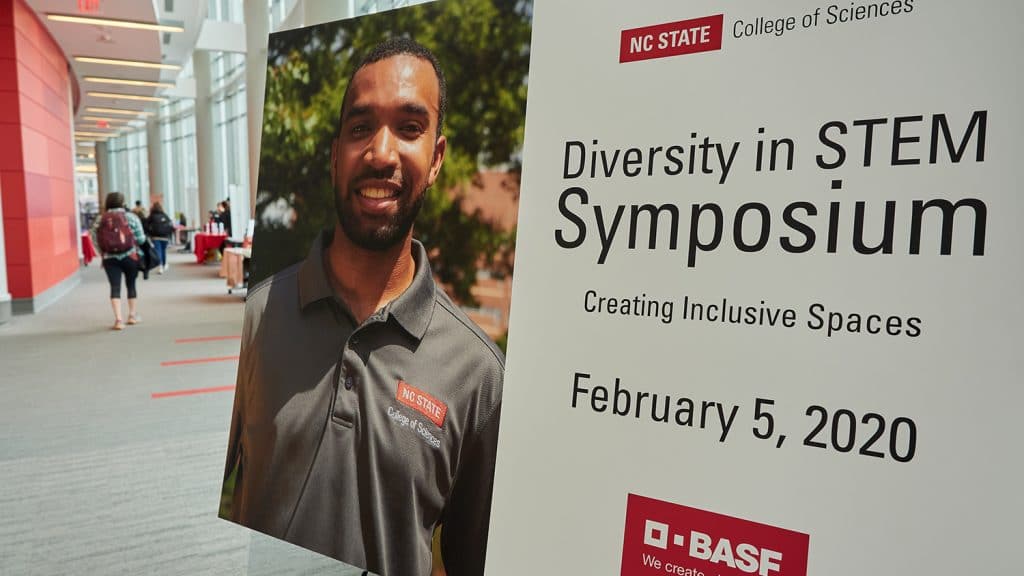
Reflecting Diversity in Our Community
Price and her human resources staff lead efforts to eliminate bias in the college’s employment practices.
“Diversity, equity and inclusion is at the foundation of human resources work,” Price said. “Most people don’t know what they don’t know. We want to educate them on what they need to pay attention to in order to understand how to move the needle toward a more diverse workforce.”
A more diverse workforce means new perspectives on every aspect of the college’s work. “Studies have shown more diverse groups make better decisions and discussions, which creates a more dynamic academic environment,” Price said.
Simpson said that diversity among faculty and staff also matters to students.
“Students care about representation among our faculty,” she said. “They want to be able to see themselves in the fields they are studying.”
These feelings can have a direct impact on these students’ education. A 2019 study published in Education Researcher shows that Black and Latino/a students are significantly more likely to switch out of STEM majors or leave college altogether than their white peers.
Vianey Ramirez, a sophomore in the Life Sciences First Year program, said that women she has found in her academic program who are also interested in diversity are helping her overcome her own impostor syndrome.
“I was looking for mentors on campus, and I was so glad to meet Dr. Claire Gordy and Dr. Melissa Ramirez,” she said. “Inclusivity is a big focus they have both personally and in their research, and seeing their success has helped me so much with my confidence as a scientist.”
Supporting Students
Strong programs to support minority scientists have long existed in the college. The college’s predecessor, the College of Physical and Mathematical Sciences, established its first DEI-focused position in 1984 when Wandra Hill was hired as minority student affairs coordinator.
Simpson started working with the college in 2008 and has since expanded its programs for diverse students. Current offerings include leadership workshops and alumni speaker events, as well as the Diversity in STEM annual dinner and biannual symposium, both of which are supported by BASF. She’s also built lifelong relationships with many of the students she’s worked with.
“We have an amazing culture of openness and community with students and alumni,” Simpson said.
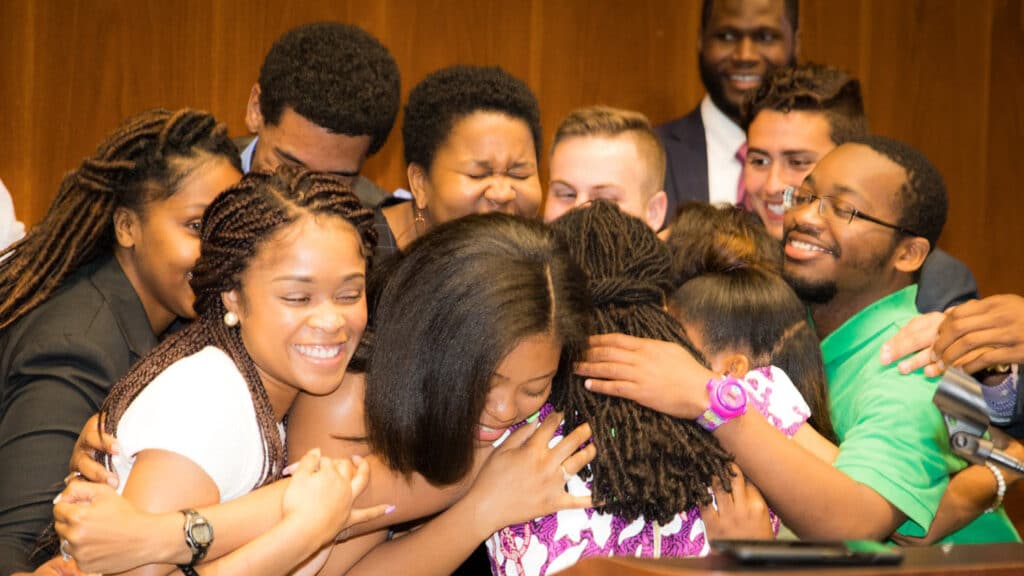
Another big source of support for many of the underrepresented students in the college is the Society for Multicultural Scientists (SMS).
Trevor Hughes, a senior statistics major, noticed when he got to NC State that he was sometimes the only Black student in some of his classes. He got involved with SMS his freshman year after Simpson recommended it as a way to connect with other diverse students, and he’s now the organization’s president. The group meets for activities like quiz bowls, service projects or just to hang out before exams.
“SMS is a close-knit community that has been a real source of support for me,” Hughes said.
Key to student support efforts is the College of Sciences Diversity Program Endowment, which helps fund diversity and inclusion programs and services including recruitment events for underrepresented students, career panels, student club activities, and professional development and leadership workshops. The fund has raised around $85,000 since it launched in early 2020.
“I’m excited that it’s going to be used to help students in the college for years to come,” Simpson said.
Planning for the Future
Since last summer, the college’s leadership team has engaged in regular discussions around DEI issues in the college and participated in training on the topic.
This work is continuing in the college’s new Committee on Diversity, Equity and Inclusion, as well as similar committees in each of the six academic departments.
“I wanted to serve on the committee to contribute to its mission because I believe that individuals have the right to be proud of their identity,” said Nada Taylor, an administrative assistant in the Department of Chemistry who is serving on the college committee.
“We want more people to see their role in diversity and inclusion.”
“Each department is already working to improve the environment, and this is a great opportunity to learn from each other and to reinforce each others’ efforts,” said Lex Kemper, associate professor of physics and a faculty representative on the committee. “I hope that the college committee will become a force for positive change within the college and beyond.”
Simpson agrees that to really move the needle and continue making the college a home for all, everyone must play a part.
“We want more people to see their role in diversity and inclusion,” Simpson said. “Everybody can start with creating a more welcoming environment within their own spheres of influence.”
- Categories:
